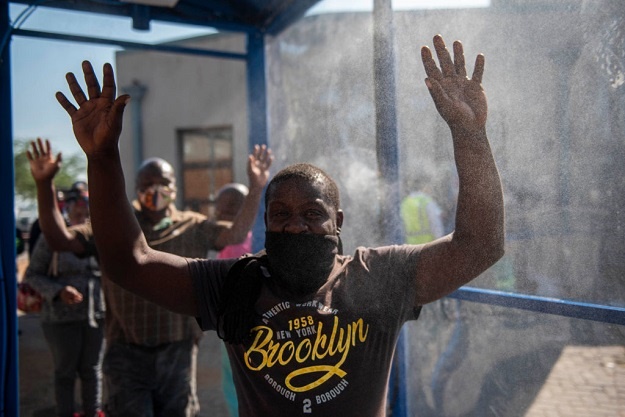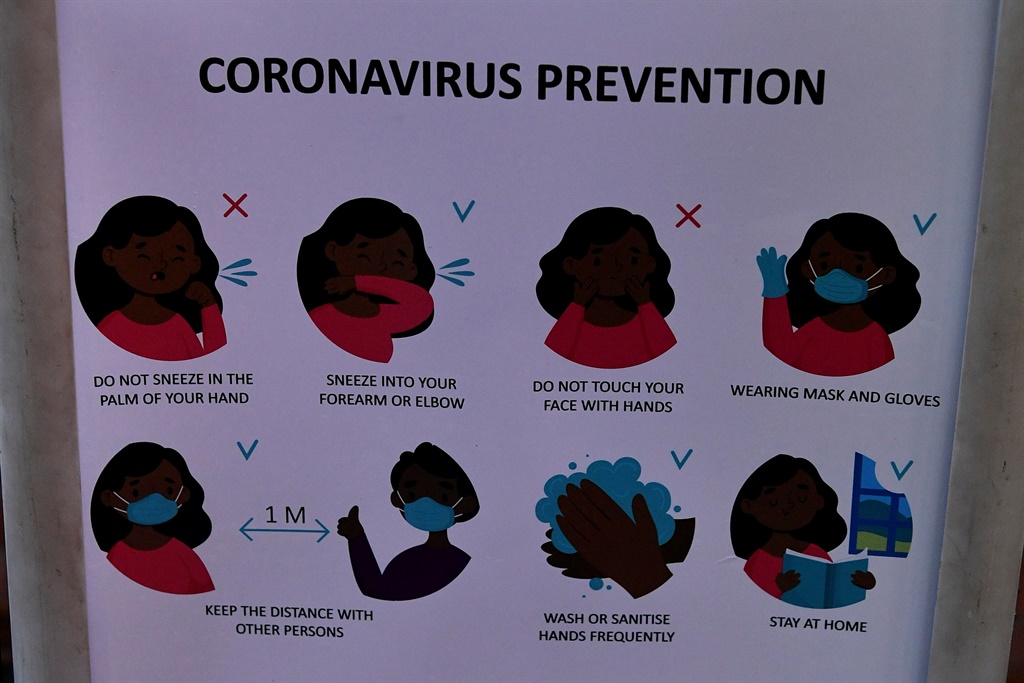- Experts say strict personal hygiene, washing hands, wearing masks and social distancing will help prevent the spread of the novel coronavirus, rather than disinfection tunnels.
- The Gauteng Department of Roads and Transport has tried out sanitation tunnels at minibus taxi ranks.
- The Department of Health has decided that the best strategy for the prevention of the spread of the virus entails identifying “hotspots”.
Experts have warned against using coronavirus “disinfection” tunnels that some people think will stop the spread of the virus.
Instead, they have suggested that strict personal hygiene, washing hands, wearing masks and keeping a 1.5m distance from others to prevent the spread of the virus.
“Human spraying is harmful with almost no benefit,” said Professor Salim Abdool Karim, who is the chairperson of the Ministerial Advisory Committee on Covid-19.
He said spraying hands properly with a sanitiser was the way to prevent the spread of the virus.
His views could put paid to the plans of the Gauteng Department of Roads and Transport which tried out sanitation tunnels at minibus taxi ranks.
READ | ‘You are almost making policy in the dark’: SARB governor Kganyago on managing Covid-19
Some people have even suggested that the tunnels should be used at schools when some pupils return on Monday.
Abdool Karim was backed up by infection control specialist Professor Shaheen Mehtar, who said: “There is no need for a disinfection tunnel.



Commuters walk through a disinfection booth during a visit by Gauteng Transport MEC Jacob Mamabolo and City of Tshwane Administrator Gilberto Martins to the Mabopane Station Taxi Rank on 12 May. (Alet Pretorius/Gallo Images via Getty Images)



Contrary to what some may believe, disinfection tunnels aren’t as effective as people think with basic hygiene protocols encouraged. (Lefty Shivambu/Gallo Images)
“And there is no need to spray any children with a chemical.”
The Department of Health has decided that the best strategy for the prevention of the spread of the virus entails identifying “hotspots”.
A hotspot team is working on a strategy to identify people for isolation and treatment, as the country braces for numbers to increase significantly in the coming weeks.
Around 50% of the deaths linked to Covid-19 have occurred in the past two weeks, and with over 655 000 tests, 65% of cases have been found to be in the Western Cape so far.
About 30 million people have been screened, but there have also been severe testing delays at the laboratories.
In the meantime, the government is stocking up on equipment needed for the storm, including personal protective equipment and body bags
This is caused by a shortage of test kits, global competition for them when their stocks are divided up by suppliers, and a shortage of the machines required for the tests.
PROFILE | Gift of the Givers CEO Imtiaz Sooliman: The day the national lockdown was announced ‘was a disaster’
In a Zoom briefing on Friday, Mkhize was told that the whole world was trying to get test kits.
He warned that the move to a Level 3 lockdown on Monday was not because the danger was passing.
He said that there were other issues (economic needs) that informed that, and warned that the solution to stopping the spread of the virus was now up to individuals.

